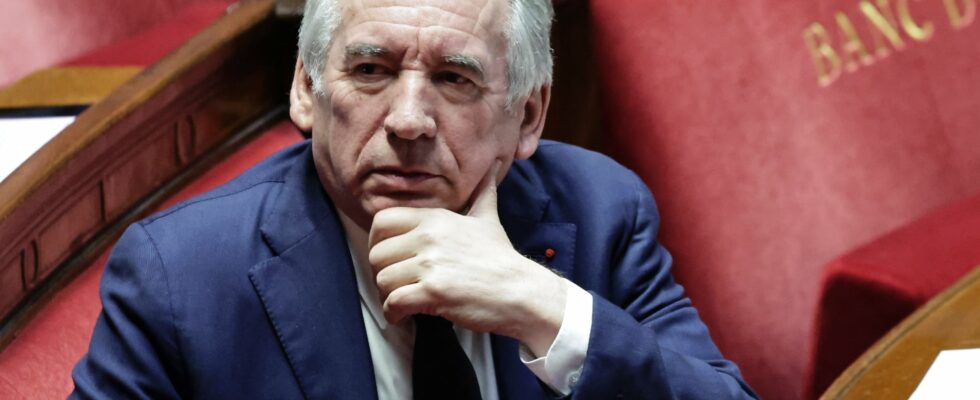Amélie de Montchalin measures the precariousness of her lease in Bercy. In an interview with Parisianthe Minister of Public Accounts unveils her draft 2025 budget, which she strips of any ostensible ideological framework. “This budget will neither be that of the right, nor that of the left, nor that of the center. It will not be the ideal budget of a party, but of a country.” This is the next finance law sent by the executive in a political no man’s land. Above partisan contingencies, in order to protect it from censorship. Thus, the minister pretends to be disinterested in the “political etiquette” of her future supporters. “I am looking for parliamentarians who want to act responsibly,” she insists.
“Responsibility.” The executive repeats this argument ad nauseam to rally public opinion and the Socialist Party to its cause. Michel Barnier measured the unreliability of the National Rally in December, his successor François Bayrou is counting on the indulgence of the left to overcome the obstacle. So, the former presidential majority urges the PS to show “responsibility”, in ambivalent calls. It invokes the glorious socialist history and its status as a “party of government” to better twist its arm. His past would oblige him for the future. The left has seized the trap, and does not leave power a monopoly on such a consensual trait. “Everyone must be responsible, including the government,” Olivier Faure said on Monday after an interview in Bercy with the Minister of the Economy Eric Lombard. The First Secretary of the PS thus requested “remarkable” gestures for the “French people” in order to spare the executive.
“Circle of Reason”
The government is de-ideologizing its budget; Eric Lombard does not rule out an increase in the flat tax or a fight against tax optimization to appeal to the left. At the same time, the opposition accepts his invitations and refrains from definitive words. No one wants to carry the mistigri of irresponsibility. Whoever holds this ball and chain is forced to make concessions. The one freed from this burden can impose his views on a weakened partner. “In times of crisis, everyone expects the adversary to give in first,” notes the Ensemble pour la République (EPR) deputy for Gironde Florent Boudié, satisfied with François Bayrou’s openness on pensions.
“Responsibility”, a notion as subjective as it is self-interested. Whoever uses it sets himself up as the arbiter of virtuous political behavior. The left perceives this as an argument of authority from power, dressed in wisdom. Calls for responsibility from the Macronist camp would only be a semantic trick aimed at imposing its ideological views. To maintain its policy in the name of a presumed superior interest, as the major balances of the Barnier budget should not be upset. “Responsibility according to the Macronists does not go beyond the contours that they themselves have drawn for the circle of reason,” mocks GDR deputy Emmanuel Maurel. Wouldn’t irresponsibility be this absence of doctrinal inflection?
The former majority criticizes the intransigence of the left. She lists her votes deemed incongruous during the budget review. Here, unconstitutional tax increases. There, the repeal of the Touraine reform carried out by the PS in 2014. “The responsibility is to behave in opposition with the same seriousness as if we were in power. Any political difference is not irresponsible. What is wrong is doublespeak,” judges EPR deputy for Paris David Amiel.
“The diet crisis looms”
Compromises, to what extent? Where do we draw the line between respect for political DNA and “irresponsibility”? The tripartition of the Assembly confronts political actors with arbitrations unprecedented under the Fifth Republic. The left is in opposition, but in the majority in its hostility to the Bayrou government. She no longer shoots blanks against the executive. His live bullets got the better of Michel Barnier’s government. Motions of censure are no longer symbolic gestures, but acts marked by seriousness.
The Socialist Party is thus forced to invent in real time a doctrine of opposition against the government. Find a balance between the manifestation of his opposition to an executive who remains Macronist and the preservation of political stability, which he does not intend to tear apart. Thus, former President François Hollande privately gives non-censorship an institutional value. “A non-censorship agreement is not only intended to obtain progress. It is necessary, as well as concessions. But it aims to ensure that the system no longer gets out of control, otherwise a regime crisis awaits. It does not would only benefit Marine Le Pen.” The executive knows it. His calls for responsibility nourish his story, but are no longer sufficient. “We must be very careful ourselves not to abuse this rhetoric, which fuels the trial with arrogance,” admits David Amiel. “We cannot have as our only project managerial prudence which would turn into conservative immobility.” Line of conduct or rhetorical procedure: “responsibility” in 2025 has new rules.
.
